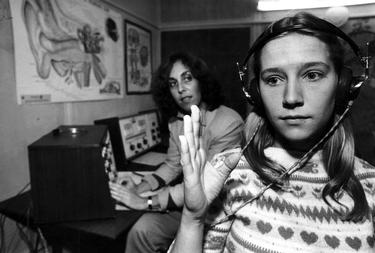A recently published letter to the Washington Post from Meredith Sugar, Esq., the president of the A.G. Bell Association for the Deaf and Hard of Hearing, does a grave disservice to Deaf children and their families. The letter attempts to undermine growing media attention on the success of Nyle DiMarco, a charismatic and intelligent young Deaf man who rose to fame as the winner of America’s Next Top Model and who is now one of the top contestants on the popular television show, Dancing with the Stars. As a Deaf person, DiMarco’s success flies in the face of everything A.G. Bell stands for. He is from a multi-generational Deaf family, a graduate of Deaf schools who holds a bachelor’s degree in mathematics, communicates in American Sign Language, uses no auditory technological devices, and comes across as a well-rounded and happy Deaf individual.A.G. Bell’s simplistic message that technological intervention makes it possible for Deaf children to “learn spoken language by listening” and that “most of these children develop language much as children with typical hearing do” is inaccurate and harmful. It glosses over the devastating psychological effects associated with a spoken-English-only approach to language. By the time parents and hearing professionals (i.e., teachers, audiologists, speech therapists, doctors) recognize that the Deaf child has significant developmental delays in linguistic development, the psychological damage has often already been done. There are far too many Deaf people who are survivors of the English-only philosophy.
A disproportionate amount of attention is given to the perceived “benefits” of speaking and hearing, no matter how perfectly or imperfectly the Deaf child is able to do this. Very little attention is given to the social, emotional, psychological, and educational harms that occur when Deaf children are denied access to ASL. These deserve attention.
Anyone invested in Deaf children’s well-being should be aware of the costs incurred when teaching spoken English comes at the expense of healthy development in other areas.
To read more about the psychological impact of oralism, see below for a link to an article co-authored by Sharon Duchesneau and the letter writer.
http://sk.sagepub.com/reference/download/the-sage-deaf-studies-encyclopedia/i3490.pdf
Dr. Candace A. McCullough, CEO
Deaf Counseling Center

